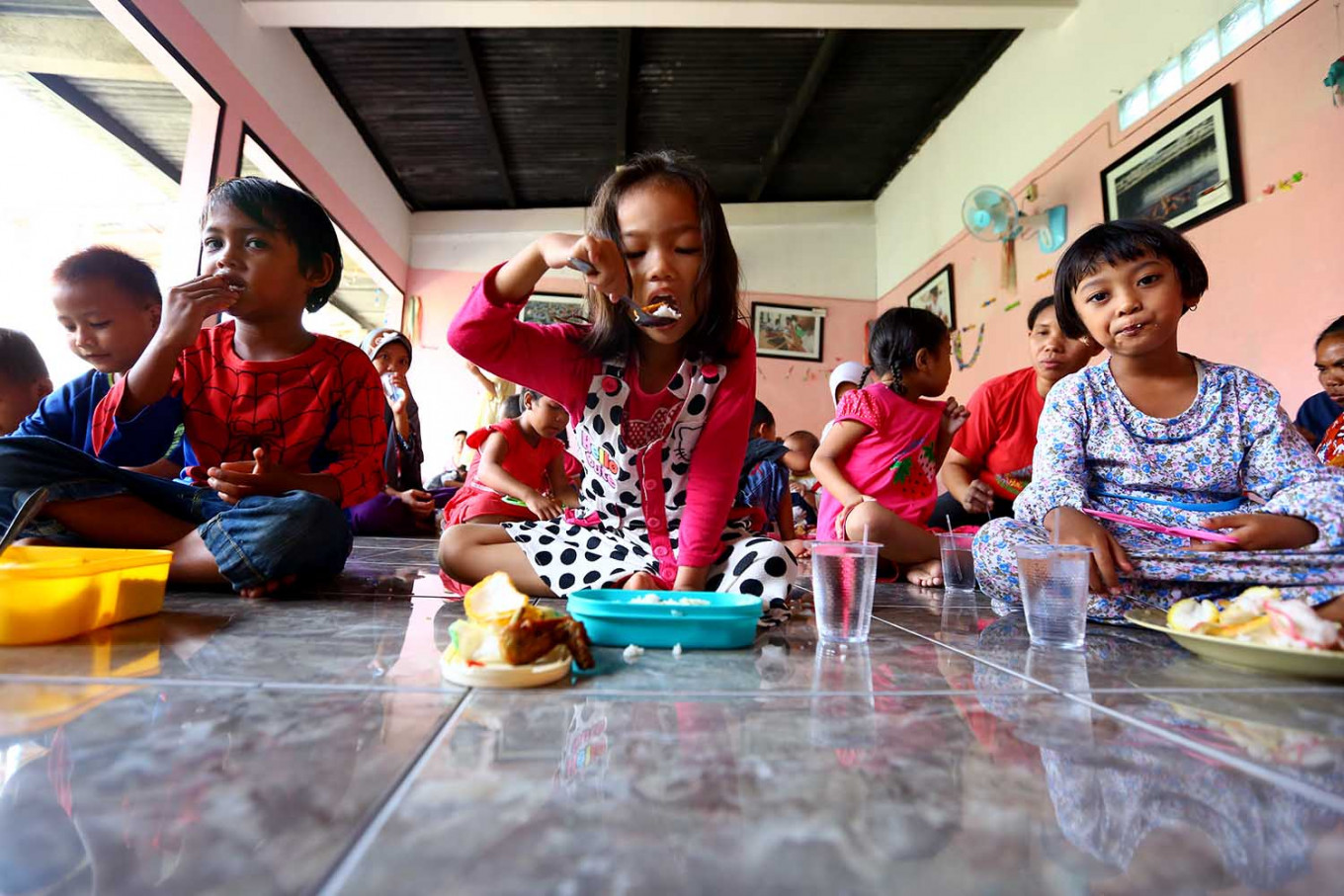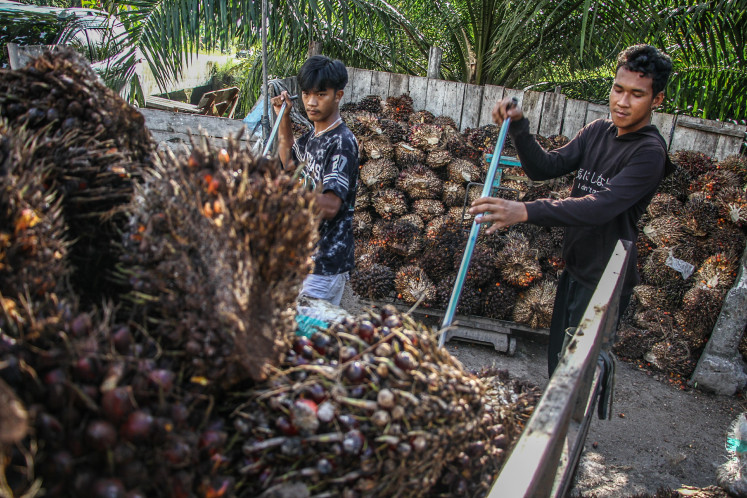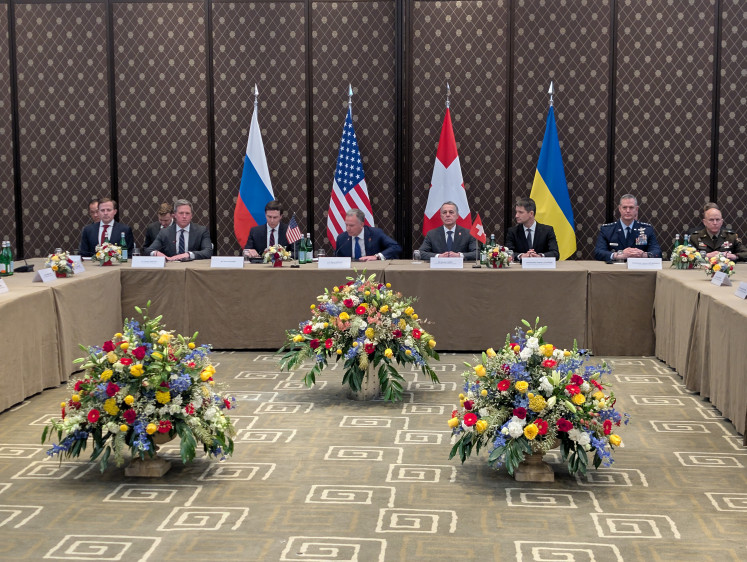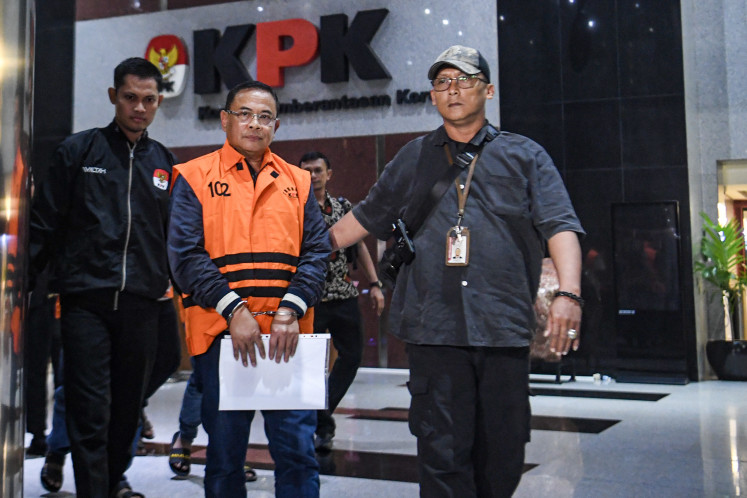Popular Reads
Top Results
Can't find what you're looking for?
View all search resultsPopular Reads
Top Results
Can't find what you're looking for?
View all search resultsNo such thing as free lunch
Food can be a sensitive issue, especially in Indonesia, so getting this wrong would cost the government a lot of political capital.
Change text size
Gift Premium Articles
to Anyone

Prabowo Subianto and Gibran Rakabuming Raka ran an electoral campaign that focused heavily on a single issue, and so it is only fair that now, as preliminary results point to their victory, the public scrutinizes their proposals.
Reporters are asking how the presumptive next government will deliver on its bold promise to provide free school lunches and milk to tens of millions of schoolchildren across a vast archipelago, as well as supplemental nutrition for pregnant mothers and toddlers.
Prabowo’s camp has had plenty of time to run the numbers for such a program, but it was only after voting day that we learned that some people may have to wait years before lunch is served.
So big is the task that the Prabowo campaign team is considering creating a new coordinating minister office dedicated to the program.
Of course, what many people are wondering now is not only how the program might be implemented but how it could be funded.
Even though the plan is now to roll the program out in stages rather than offer it nationwide from the get-go, it is still estimated to cost between Rp 100 trillion and Rp 120 trillion in the initial year, and Rp 460 trillion annually once it reaches full scale in 2029.

The Prabowo team has sought to allay concerns about financing by suggesting the formation local partnerships to reduce the strain on the state budget, but that still leaves many questions unanswered, as do the team’s references to undisclosed “other [budget] sources” and to an unspecified regulatory amendment.
The initiators of the plan hail it as a way to support GDP growth and employment, but assessing the overall economic impact is far from straightforward. As a country, we won’t suddenly be producing or consuming that much more.
Presumably, children will eat more at school and less at home. With all the logistics involved, the net impact on GDP is hard to determine, especially when long-term considerations of resource allocation are taken into account.
A specific concern is waste. Unlike with meals served at home, parents would be unable to ensure their children ate well and emptied their plates. That said, this could be an opportunity for schools to raise awareness about healthy diets and the true worth of food. They might do better at this than many households, assuming they have the capacity to take on such a role.
There is also the risk of wastage in distribution as vast amounts of ingredients are moved around in tropical conditions. Proper cold chains must, therefore, be part of the immense logistical setup needed to roll out the free food program.
Finally, there is the risk of financial waste, so transparency and oversight are crucial to prevent graft and ensure the promised nutritional value is delivered. We don’t need generation instant noodles.
Neither the high costs nor the implementation challenges should deter a Prabowo administration from pursuing the program. After all, millions of voters have arguably picked the Prabowo-Gibran ticket for that very promise. Yet it is vital to be clear-eyed about the magnitude of the task.
Food can be a sensitive issue, especially in Indonesia, so getting this wrong would cost the government a lot of political capital.
Fortunately, Indonesia can draw from the experiences of many other countries offering free school meals, while bearing in mind specific domestic conditions.
Food is a basic human right, and offering free lunches at state schools goes a long way toward ensuring that children can avail themselves of that right, regardless of family finances. Supplemental nutrition for toddlers and pregnant mothers, meanwhile, should help the country make headway in its longstanding effort to end stunting, though it will need to be flanked by additional measures, such as improving access to clean water and sanitation in underdeveloped regions.










